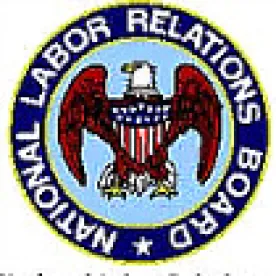On June 6, 2018, the National Labor Relation Board’s (“NLRB” or “Board”) General Counsel issued Memorandum GC 18-04 (“GC 18-04”), which provides guidance to employers on the legality of certain handbook rules following the Board’s decision in The Boeing Company, 365 NLRB No. 154 (Dec. 14, 2017). By way of background, in 2004, the Board issued Lutheran Heritage Village-Livonia, 343 NLRB 646 (2004), which held that the mere maintenance of a neutral work rule violated Section 8(a)(1) of the National Labor Relations Act (“NLRA” or “Act”) if employees would “reasonably construe” the rule to prohibit protected concerted activity under Section 7 of the NLRA. The Lutheran Heritage test gave no consideration to the employer’s stated justifications for implementing the rule, and produced arbitrary and oftentimes nonsensical Board decisions that appeared to hinge on what the then-Board majority believed an employee may think about a particular rule. In Boeing, the Board overruled the “reasonably construe” standard announced in Lutheran Heritage and issued a new test that balanced the impact a reasonably interpreted, facially neutral rule may have on employees’ Section 7 rights with the employer’s business justifications for the rule. The Board noted that work rules will likely fall into three categories: Category 1 rules, which will include rules that the Board deems to be facially lawful; Category 2 rules, which will require individualized scrutiny to determine if the rules are lawful; and Category 3 rules, which will be rules designated by the Board as unlawful. A more detailed discussion of the Boeing case is available.
Although the Boeing decision offered some useful guidance for employers (and specifically, the no-camera rule at issue was determined to be a lawful Category 1 rule due to the heightened security concerns applicable to the defense contractor employer), Boeing provided little guidance to employers on how other common employment policies and rules would be categorized by the Board. Fortunately, GC 18-04 fills this gap by providing specific examples of various common workplace policies that fall within each of the three new categories announced by the Boeing decision. Although GC 18-04 does not deal with every type of rule or policy that an employer may promulgate—for example, rules concerning confidentiality of discipline or arbitration or rules that limit access to Board processes—we expect that cases evaluating these rules will be coming down the pipeline soon.
Category 1 Rules: Generally Lawful to Maintain
GC 18-04 states that the following types of rules are generally lawful to maintain, and that that Regions should dismiss any unfair labor practice charges alleging that these rules are facially unlawful:
- Civility Rules – Rules that, for example, prohibit rude or discourteous behavior, conduct that impedes harmonious interactions, or disparaging company employees.
- No-Photography/No-Recording Rules – Rules that prohibit the use of cameras or recording devices. Note that rules that ban the possession of cell phones at work may be unlawful under certain circumstances.
- Insubordination Rules – Rules that prohibit insubordination, unlawful or improper conduct, uncooperative behavior, refusal to comply with orders or perform work, or other on-the-job conduct that adversely affects the employer’s operations.
- Disruptive Behavior Rules – Rules that prohibit boisterous, disruptive, or disorderly conduct.
- Confidentiality Rules – Rules that protect an employer’s confidential, proprietary, or customer information that do not mention employee or wage information.
- Defamation or Misrepresentation Rules – Rules that prohibit defamation, slander, and misrepresentation.
- Employer Logos and Intellectual Property Rules – Rules that prohibit the use of employer logos or trademarks.
- Rules Requiring Authorization to Speak for the Company– Rules that prohibit employees from responding to media requests or commenting on behalf of the employer.
- Conflict of Interest Rules – Rules that ban disloyalty, nepotism, or self-enrichment, or rules that prohibit certain competitive activities.
Category 2 Rules: Require Individualized Security
Category 2 rules require a case-by-case evaluation. Accordingly, GC 18-04 states that all Category 2 rules must be submitted to the Division of Advice if the Board has not yet issued a decision applying the Boeing standard to the rule at issue.
According to the GC, “some possible examples” of Category 2 rules include:
- Broad conflict of interest rules that do not fall into Category 1 (lawful rules that target fraud and self-enrichment) or Category 3 (unlawful rules that restrict membership in or voting for a union)
- Confidentiality rules relating to “employer business” or “employee information” that do not fall into Category 1 (lawful rules regarding customer or proprietary information) or Category 3 (unlawful rules that prohibit disclosure of wages, terms of employment, or working conditions)
- Rules regarding disparagement or criticism of the employer (versus lawful Category 1 rules that prohibit disparagement of employees)
- Rules regulating use of the employer’s name (versus lawful Category 1 rules that prohibit the use of employer’s logo or trademark)
- Rules that generally restrict an employee’s ability to speak to the media or third parties (versus lawful Category 1 rules that prohibit an employee from speaking on the employer’s behalf)
- Rules that ban off-duty conduct that may harm the employer that do not fall into Category 1 (lawful rules banning insubordination or disruptive behavior) or Category 3 (unlawful rules banning participation in outside organizations)
- Rules against making false or inaccurate statements (versus lawful Category 1 rules prohibiting defamation)
Category 3 Rules: Unlawful to Maintain
Category 3 rules are unlawful to maintain and absent special circumstances, the Regions are recommended to issue complaints on these rules. The Category 3 rules identified in GC 18-04 are: (1) confidentiality rules specifically regarding wages, benefits, or working conditions; and (2) rules against joining outside organizations or voting on matters concerning the employer.
Final Thoughts
Employers looking to capitalize on the balanced approach to reviewing employer work rules announced by the Board in Boeing now have a greater measure of predictability due to the issuance of GC 18-04. While employers are encouraged to take a fresh look at their respective employment policies that may have previously run afoul of the Board’s Lutheran Heritage test, employers must nevertheless remain committed to legitimate efforts to promote discipline, safety and productivity in the workplace by avoiding facially neutral rules that are applied in ways that limit an employee’s Section 7 rights, or that explicitly ban, or are issued in response to, protected concerted activity.
Jenna Mennona contributed to this piece.




 />i
/>i

